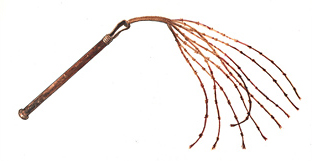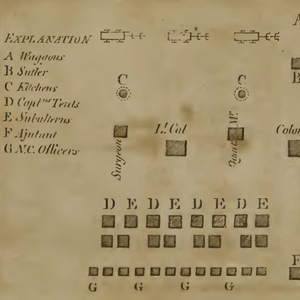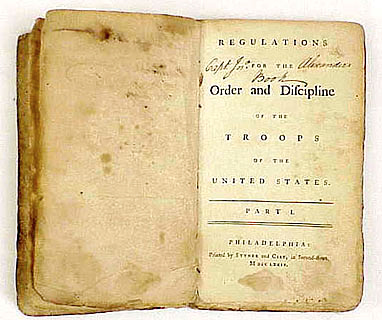Life in the Lewis and Clark Expedition was regimented by the military regulations of the young Army of the United States.


Until he presented his services to General Washington at Valley Forge, the Continental Army still consisted merely of a number of state-sponsored militias that were entirely independent of one another, each operating according to its own rules and regulations.


The first major objective of basic training was mastery of the “Manual Exercise,” or manual of arms. It involved 27 commands from the sergeant, calling for 56 motions by the recruit. The single command, “Prime and Load,” involved fifteen motions.
Guard Duty
by Joseph A. Mussulman

During their journey up the Missouri to the Mandan villages, security procedures were outlined in the detachment orders of 26 May 1804. The detachment orders setting forth procedures for the security of Fort Clatsop, were issued on 1 January 1806.
The expedition’s enlisted men were obliged to comply with the basic military rules and regulations contained in two distinct official documents that had been written in the initial heat of the Revolutionary War.
Army Hygiene
by Joseph A. Mussulman

Officers were to see that their men’s hands and faces were daily “washed clean” and their hair combed. Soap was relatively expensive, and if individuals or families couldn’t manage to make their own, they just went without.


The first court martial took place on 29 March 1804, when John Colter, Robert Frazer, and John Shields were called before the court. Discreetly, Clark committed no details of this one to his journal, and no record of it was entered in the Orderly Book.


Spacing between tents, as well as lines of tents, was strictly measured. Privates’ tents, accommodating 6 men each, were between the sergeants’ tents; all were two feet apart. The “sink,” or latrine, was to be 60 paces (300 feet) in front of the first line of tents.


Steuben’s book was much more than a “blue book” of military regulations and procedures. It concluded with guides to character, pride and conduct for men of every rank, from regimental commanders and their subordinates, to non-commissioned officers and privates.
Fort Clatsop Detachment Orders
by Joseph A. Mussulman

The captains issued Detachment Orders showing the degree to which Lewis and Clark consistently maintained the spirit of Baron von Steuben’s Regulations for the Order and Discipline of the Troops of the United States.
Experience the Lewis and Clark Trail
The Lewis and Clark Trail Experience—our sister site at lewisandclark.travel—connects the world to people and places on the Lewis and Clark Trail.
Discover More
- The Lewis and Clark Expedition: Day by Day by Gary E. Moulton (University of Nebraska Press, 2018). The story in prose, 14 May 1804–23 September 1806.
- The Lewis and Clark Journals: An American Epic of Discovery (abridged) by Gary E. Moulton (University of Nebraska Press, 2003). Selected journal excerpts, 14 May 1804–23 September 1806.
- The Lewis and Clark Journals. by Gary E. Moulton (University of Nebraska Press, 1983–2001). The complete story in 13 volumes.

